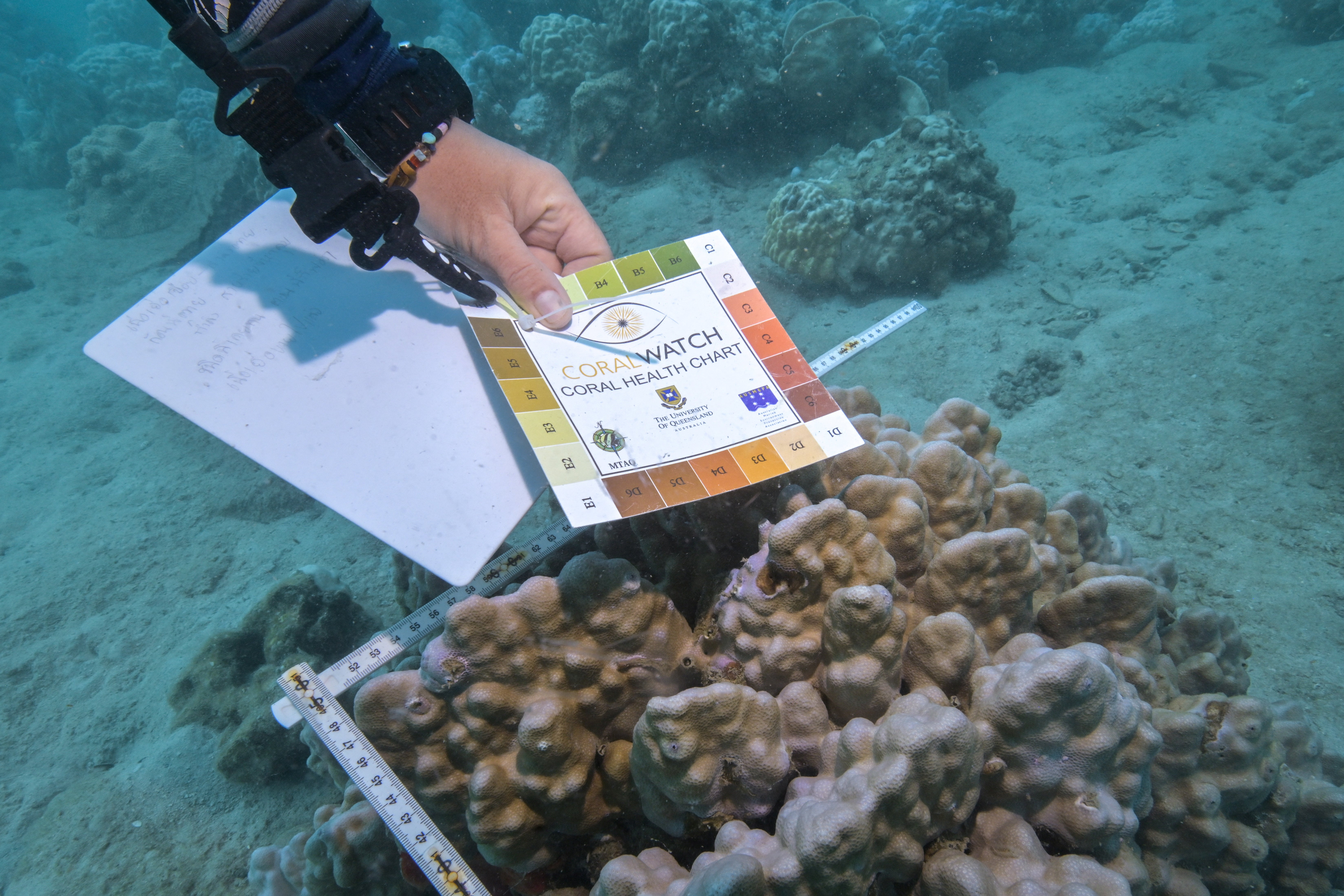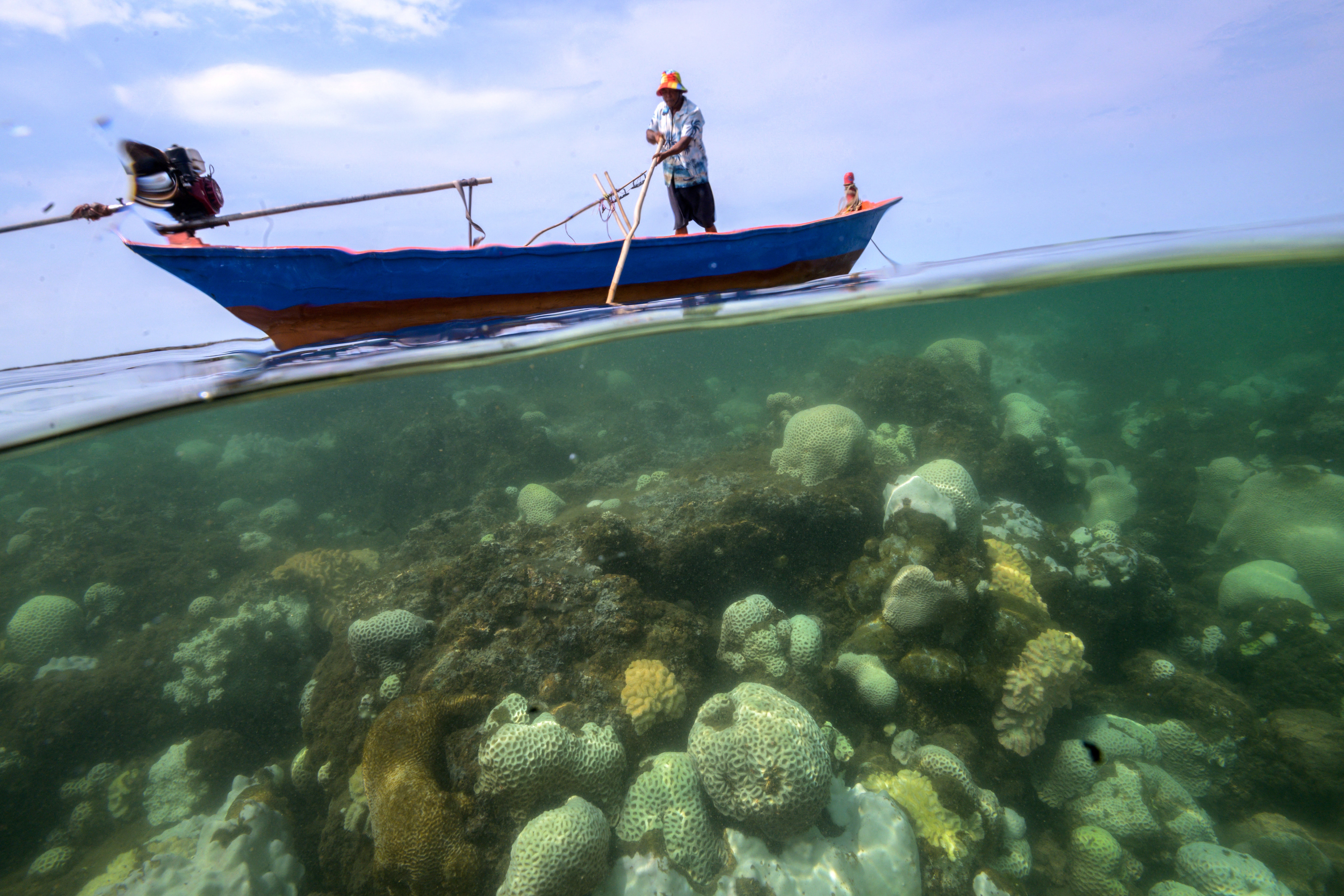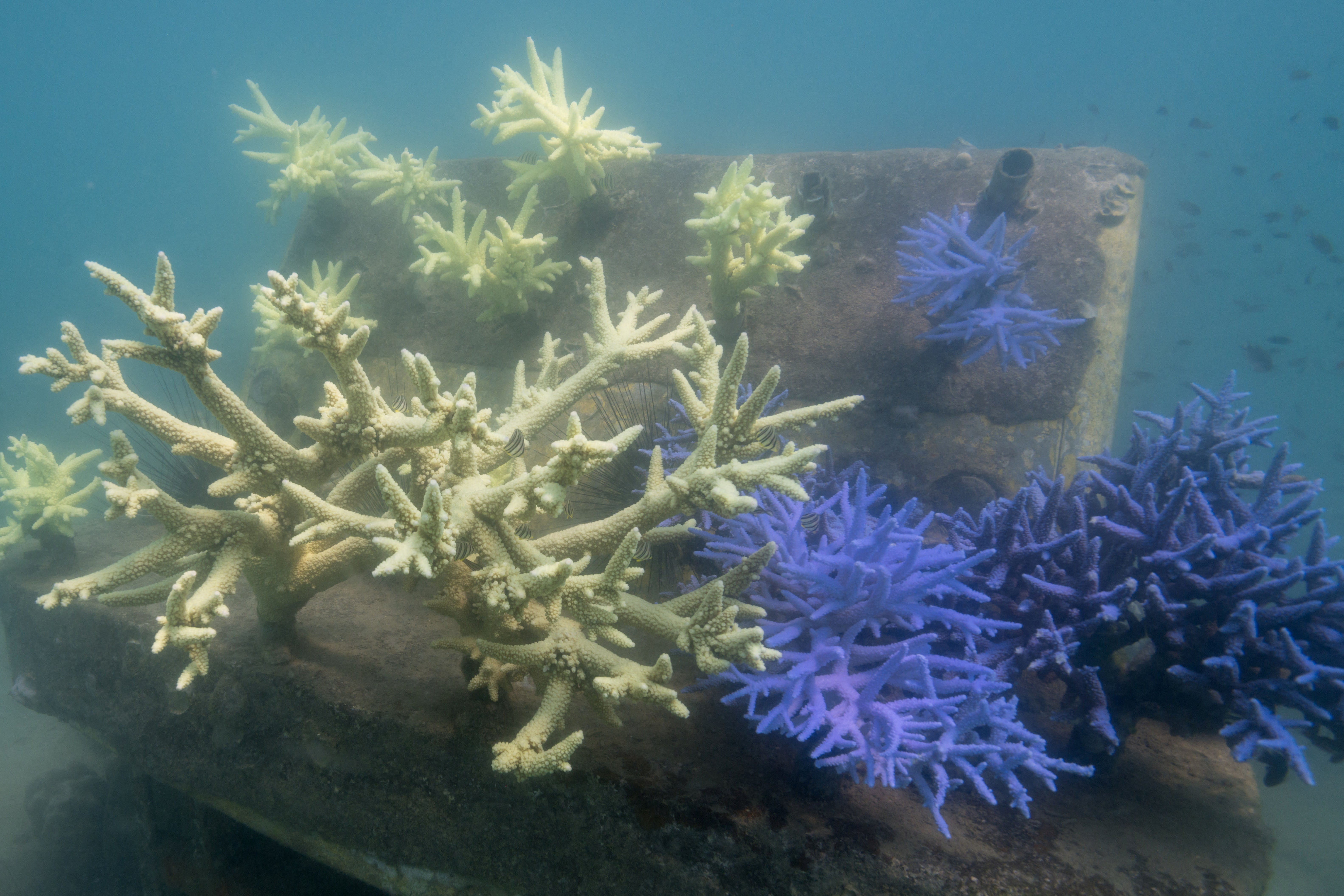‘Boiling not warming’: Thai marine life suffers as record sea temperatures bleach entire reefs
‘Almost all of the species have bleached, there’s very little that’s not affected’

Your support helps us to tell the story
From reproductive rights to climate change to Big Tech, The Independent is on the ground when the story is developing. Whether it's investigating the financials of Elon Musk's pro-Trump PAC or producing our latest documentary, 'The A Word', which shines a light on the American women fighting for reproductive rights, we know how important it is to parse out the facts from the messaging.
At such a critical moment in US history, we need reporters on the ground. Your donation allows us to keep sending journalists to speak to both sides of the story.
The Independent is trusted by Americans across the entire political spectrum. And unlike many other quality news outlets, we choose not to lock Americans out of our reporting and analysis with paywalls. We believe quality journalism should be available to everyone, paid for by those who can afford it.
Your support makes all the difference.Aquatic life along Thailand’s eastern gulf coast is suffering as sea surface temperatures hit record highs this month amid a heatwave, worrying scientists and local communities.
The once vibrant and colourful corals, about five metres (16 feet) underwater, have turned white in a phenomenon known as coral bleaching, a sign that their health was deteriorating, due to higher water temperatures, scientists say.
Sea surface temperatures in the Eastern Gulf of Thailand reached 32.73°C (90.91°F) earlier this month while underwater readings are slightly warmer, with dive computers showing around 33°C, data shows.
“I couldn’t find a single healthy coral,” said marine biologist Lalita Putchim of the Department of Marine and Coastal Resources (DMCR) after completing a dive in the gulf coast.
“Almost all of the species have bleached, there’s very little that’s not affected.”

The Trat archipelago is home to over 66 islands, with over 28.4 square kilometres (2,841 hectares) of coral reef, where Lalita has found that up to 30% of coral life was bleaching and 5% had already died.
If water temperatures do not cool, more coral will die, Lalita said.
“It’s global boiling, not just global warming,” she said.
Rising temperatures were also impacting other marine life and the livelihoods of local fishermen including Sommay Singsura.
In recent years, his daily catch of seafood has been dwindling. Previously he had been able to make up to 10,000 baht ($275) a day, but now sometimes he comes back empty handed.
“There used to be jackfish, short mackerel, and many others ... But now, the situation isn’t good. The weather isn’t like what it used to be,” Sommay laments.

Coral reefs are both a food resource and habitat for marine life, as well as being natural barriers preventing coastal erosion, scientists say.
If bleaching causes marine life to decrease, fishermen will need to spend more to get their catch, which could see selling prices rise, said Sarawut Siriwong, the dean of faculty of Marine Technology at Burapha University.
“While this (coral bleaching) would affect food security, at the same time, their (community) income stability is also at stake,” he said.
Join our commenting forum
Join thought-provoking conversations, follow other Independent readers and see their replies
Comments